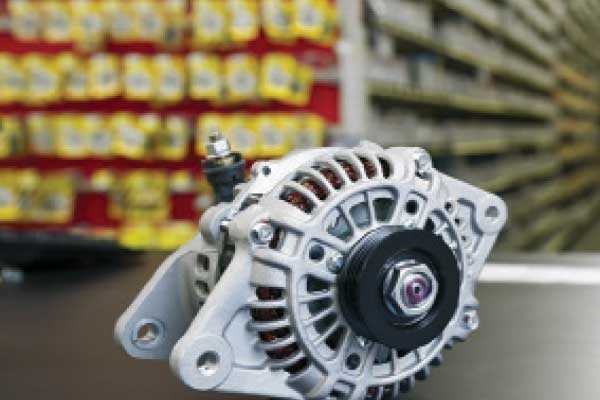Botswana positions herself as automotive parts manufacturer
Botswana wants to find her niche in the global manufacturing value chain, the country’s investment agency’s chief, Letsebe Sejoe has told representatives of the 62-member Japanese Chamber of Commerce and Industries in South Africa (Je,Shi,Shi,Ai,Es,Ei).
However, Botswana has accepted that unlike South Africa, she cannot be a manufacturing hub because of her scale of economies. “But most certainly,” Sejoe told the Japanese investors on Thursday October 27th in Sandton, Johannesburg, “We can find the components that we can manufacture in Botswana that can find their way into the South African manufacturing base, because we are much closer than where some of these components are being imported from.”
These components are imported from as far as Hungary, Slovakia, Poland, Malaysia and in some cases Taiwan. “We are very close, in fact the manufacturing base of Gaborone is about three hours from Pretoria, where the Roselyn automotive centre (is) and a couple of more hours from Durban,” said Sejoe, adding that, this is a “key opportunity where we are positioning ourselves.” He promised the investors that they will qualify for preference purchase margins from government if they manufacture some of the products that Botswana imports. BITC is also ready and willing to provide the investors with a list of products the country imports, he said.
Considering that Japan is “very active” in the automotive industry, BITC took pains to share with the Japanese investors gathered at the JETRO offices, a snapshot of the top ten components that are imported into South Africa by the leading original equipment manufacturers (OEMs) in that country. And these are: automotive tooling, tyres, engine parts, transmission shafts/cranks, gauges/instruments parts, stitched leather seats and parts, engines, brake parts, lighting equipment/part and catalytic converters. Figures sourced from South Africa’s Automotive Industry Export Council (AIEC), show the total cost for these automotive part imports in 2013 was R43, 147 million.
“This is really where the opportunity is, these components or products are currently not manufactured in South Africa,” Sejoe urged the investors drawn from among others, NEC Africa, Toyota Tsuho Africa, Toshiba Africa, Nissan South Africa, Sumitomo Corporation Africa, Mitsui & Co, Marubeni Corporation, The Bank of Tokyo – Mitsubishi UFJ, KPMG, Mizuho Corporate Bank, Sojitz Corporation, JICA, Mitsubishi Corporation and Pricewaterhouse Coopers South Africa. He said that South Africa currently goes to “great pains” to import these components from all over the world hence this provides a comparative advantage for companies that manufacture these products and components to manufacture them in Botswana, because Botswana is close to these OEM factories, has a competitive tax rate, is a peaceful country and a member of Southern African Customs Union (SACU) – a free trade area comprising Botswana, Lesotho, Namibia, South Africa and Swaziland.
This means that these components and products will move in and out of Botswana into South Africa “quota free, duty free without any restrictions or limitations on their movements,” he said. Sejoe then appealed to any investor who is into automotive manufacturing to have “their pick,” promising that these (components) would be “successful” because they are in demand in the South African economy.To bolster his sales pitch, Sejoe was joined in the investment promotion mission by Ambassador of Japan to Botswana, Masahiro Onishi and his 2nd secretary for economic affairs, Yoshihiri Uemura as well as a formidable team from BITC comprising executive directors for investment promotion and international business, Reitumetse Aphiri and Moshie Ratsebe respectively.
Logistics, ICT, other services and tourism are also some of the areas into which Botswana is attracting international investments. BITC is also establishing Botswana as an international financial service centre (IFSC). This means that foreign owned companies can domicile their headquarter companies for Africa operations in Botswana and be eligible for “significant taxation incentives” such as exemption from withholding tax on dividends, royalties; on interest paid out and management fees. Other benefits for IFSC registered companies include a low corporate tax of 15 percent down from 22 percent and exemption from the 12 percent VAT and Capital Gains Tax, provided that the investor owns more than 25 percent of the company.
But the “unique feature” about Botswana and IFSC, in the view of the BITC head honcho is that a foreign owned company can actually-denominate its share capital; state of financial condition (balance sheet) or profit and loss (P & L) statement in any major convertible currency – the Euro, US Dollar; Pound Sterling or Japanese Yen – to protect it against exchange rate related risks and losses.
After Sejoe had beguiled his audience, which attestations had been corroborated by Ambassador Onishi, who exalted Botswana’s peace dividend and democratic credentials, Chairman of Je,Shi,Shi,Ai,Es,Ei, Yakashi Yao, who was also representing Marubeni Corporation, told this reporter that their interaction with BITC delegation marked the beginning of a new era in Japan/Botswana commercial and trade relations.In fact, subject to a few logistics among them finalisation of the power purchase agreement with government of Botswana – hopefully by end of this month - Marubeni Corporation will take over the 300 MW Morupule B power station as an independent power producer. In his earlier speech, Yao had praised Botswana as “truly unique in Africa” much like the stripes of her national animal – the zebra. Executive Director for JETRO Africa Region Hiroyuki Nemoto had also expressed similar adoration for Botswana’s economic fundamentals with equal oomph.





